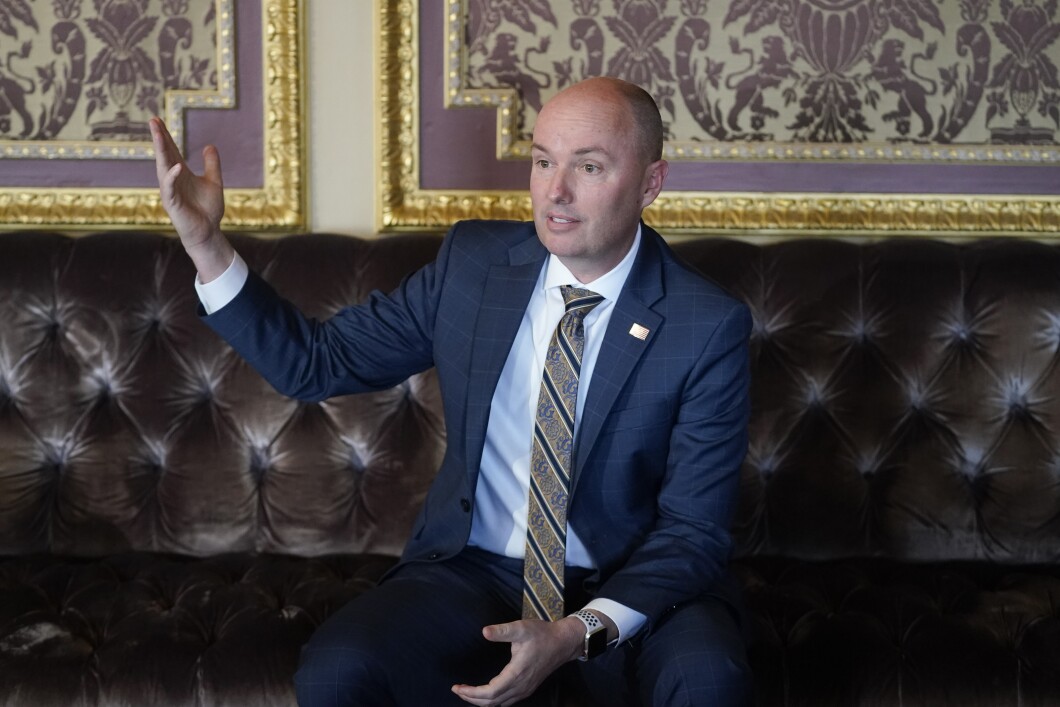
A new law regulating social media in Utah could run afoul of rights to privacy and the First Amendment, industry allies and advocacy groups said.
Gov. Spencer Cox (R-UT) passed a pair of bills on Thursday that will regulate and limit teenage and child access to social media. One bill, SB152, will require age verification, restrict teenage access during late-night hours, ensure parental access to a child’s account, and limit the information collected by apps. The other, HB311, will ban users from incorporating features that could cause a teenager to become addicted. While Cox and the bill’s sponsors presented the legislation as a tool for protecting teenagers, industry and privacy experts argued that the two bills are damaging to teenagers’ rights.
“Protecting teens online is a worthy goal, but these Utah bills are both counterproductive to this end and unconstitutional,” NetChoice Litigation Center Associate Director Nicole Saad Bembridge said in a statement.
The bills threaten Utahans’ First Amendment rights, Bembridge said, by requiring users to submit records of their age and birth relationship before being allowed to post freely on a social network. NetChoice is a conservative tech advocacy group that regularly advocates tech companies on the state and federal levels.
BILL TO PREVENT SPYING BY SMART FRIDGES ADVANCES TO SENATE FLOOR
“Young people have First Amendment rights,” said Jason Kelley, associate director of digital strategy at the Electronic Frontier Foundation. Kelley said in a letter to Cox that the law would not hold up in court because similar efforts at the federal level to restrict access to internet content have been struck down and that SB152 would shut Utah teenagers off from “vast parts of the internet, despite lacking evidence that restricting young people from accessing the platforms at issue would solve a specific problem.”
Bembridge and Kelley also claimed that the setup would require collecting large amounts of personal data. SB152 and HB311 would require companies to keep records of all social media users, including those 18 or younger. These records would require users to submit their government IDs to be approved. It would also require parents to submit documents proving a child’s relation to a parental figure.
There are also a number of uncertainties around how the law will handle data collection, according to Cato Institute research fellow Jennifer Huddleston. For example, what if a parent has a different last name than their child? Or if the parents and children don’t have a good relationship, or the parent has a restraining order on them? “The other side of the concern would be someone trying to falsify that they are a young person’s parent, and if that doesn’t get caught, then they have a bad actor gaining access to information on a young person by exploiting a privacy loophole,” Huddleston told the Washington Examiner.
Cato is a libertarian think tank with an emphasis on free markets and free speech.
It’s unclear who will collect the data. The Consumer Protection Division of the Utah Attorney General’s Office will be interpreting the bill to determine if the apps themselves will collect the data or if a third-party entity will do so, but it has not released a statement on how it will approach the matter.

Cox signed the two bills on Thursday after getting support from the Utah state legislature. “This is something that is killing our kids,” Cox said at a March 16 news conference. “It’s the addictive qualities of social media that are intentionally being placed by these companies to get our kids addicted, and they know it’s harming them.”
CLICK HERE TO READ MORE FROM THE WASHINGTON EXAMINER
Multiple states have been pushing for laws allowing them to regulate social media’s effects on teenagers. California passed a law restricting an app’s ability to gather personal data from teenagers and requiring them to give teenage users the highest security settings by default.
Louisiana passed legislation in 2022 requiring users to provide a copy of their government ID to access pornography websites.





